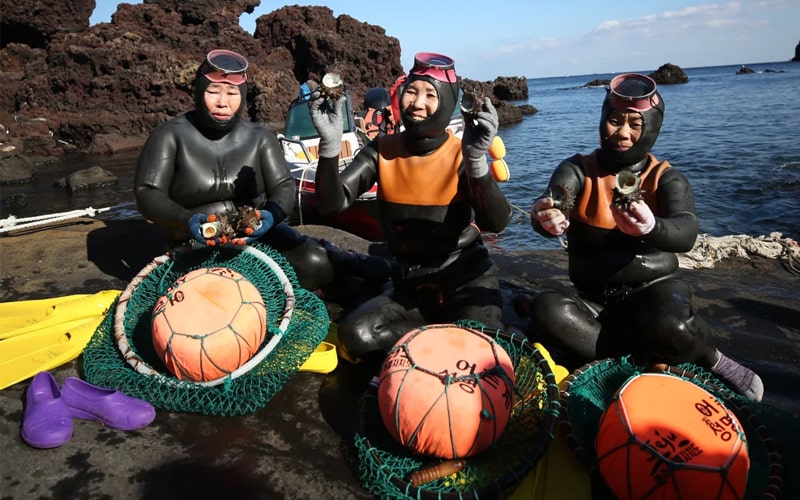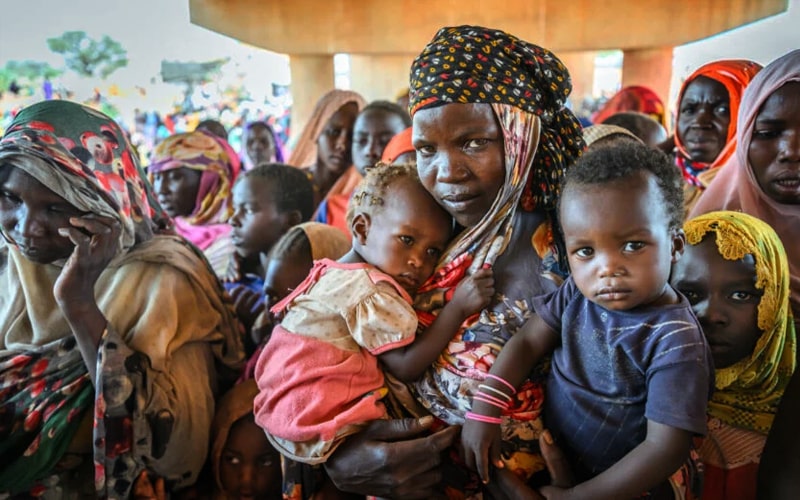Haenyeo divers from Jeju Island may carry genetic traits linked to low blood pressure and cold tolerance A groundbreaking scientific study has revealed that Haenyeo, South Korea’s legendary female free divers from Jeju Island, may have evolved unique genetic traits to support their extreme underwater lifestyle. These women, some in their 70s, dive without oxygen tanks, collecting shellfish from the ocean floor in frigid conditions. Researchers from South Korea, Denmark, and the United States conducted the study, published on May 2 in Cell Reports, and uncovered gene variants associated with low blood pressure and increased cold tolerance, raising fascinating questions about human adaptation and evolution. Diving deeper into DNA The research team studied 30 Haenyeo divers, 30 non-diving women from Jeju, and 31 women from mainland South Korea. Each participant underwent tests that simulated diving conditions: face submersion in cold water while holding their breath — a safe way to trigger the mammalian diving reflex. “If you hold your breath and submerge your face in cold water, your body responds as if you’re diving,” said lead author Melissa Ilardo, geneticist at the University of Utah. This natural reflex slows heart rate, raises blood pressure, and causes the spleen to contract, helping conserve oxygen. Genetic adaptation vs. training The study found that both divers and non-divers from Jeju were four times more likely than mainlanders to carry a blood pressure-lowering gene variant. This trait, researchers speculate, could have evolved to protect pregnant Haenyeo, who dive year-round, including during pregnancy — a …
Amelia
Amelia
Topics:

Did South Korea’s Legendary Female Free Divers Evolve for Life Underwater? New Study Reveals Unique DNA Traits

Haenyeo divers from Jeju Island may carry genetic traits linked to low blood pressure and cold tolerance
A groundbreaking scientific study has revealed that Haenyeo, South Korea’s legendary female free divers from Jeju Island, may have evolved unique genetic traits to support their extreme underwater lifestyle. These women, some in their 70s, dive without oxygen tanks, collecting shellfish from the ocean floor in frigid conditions.
Researchers from South Korea, Denmark, and the United States conducted the study, published on May 2 in Cell Reports, and uncovered gene variants associated with low blood pressure and increased cold tolerance, raising fascinating questions about human adaptation and evolution.
Diving deeper into DNA
The research team studied 30 Haenyeo divers, 30 non-diving women from Jeju, and 31 women from mainland South Korea. Each participant underwent tests that simulated diving conditions: face submersion in cold water while holding their breath — a safe way to trigger the mammalian diving reflex.
“If you hold your breath and submerge your face in cold water, your body responds as if you’re diving,” said lead author Melissa Ilardo, geneticist at the University of Utah.
This natural reflex slows heart rate, raises blood pressure, and causes the spleen to contract, helping conserve oxygen.
Genetic adaptation vs. training
The study found that both divers and non-divers from Jeju were four times more likely than mainlanders to carry a blood pressure-lowering gene variant. This trait, researchers speculate, could have evolved to protect pregnant Haenyeo, who dive year-round, including during pregnancy — a time when high blood pressure can be life-threatening.
Additionally, Jeju residents exhibited a cold tolerance gene more commonly than mainland participants, though further research is needed to confirm its role in diving performance.
While genetics played a part, training also proved critical. Haenyeo showed a 50% greater reduction in heart rate during simulated dives, compared to non-divers — a clear sign of physiological conditioning.
Are the Haenyeo the last of their kind?
The current generation of Haenyeo has an average age of 70, and with few young women continuing the tradition, researchers warn the practice may soon vanish. Once numbering in the thousands, Haenyeo divers are now a shrinking group, with their lifestyle recognized by UNESCO as Intangible Cultural Heritage.
Ilardo notes, “It’s a matrilineal tradition passed from mothers to daughters. If it ends, we lose an incredible window into human biology and culture.”
Potential medical breakthrough
The gene associated with lower blood pressure is of particular interest to medical researchers.
“This gene reduced blood pressure by more than 10% in carriers — that’s a huge effect,” said Ben Trumble, a human evolution expert at Arizona State University.
Trumble emphasized the importance of studying non-urban, physically active populations, which may reveal biological insights lost in industrialized societies.
What’s next?
Ilardo and her team plan to continue their work with the Haenyeo, hoping to uncover more about evolutionary adaptations and their potential medical applications, particularly for blood pressure disorders and oxygen management in extreme environments.
Subscribe to Our Newsletter
Keep in touch with our news & offers












